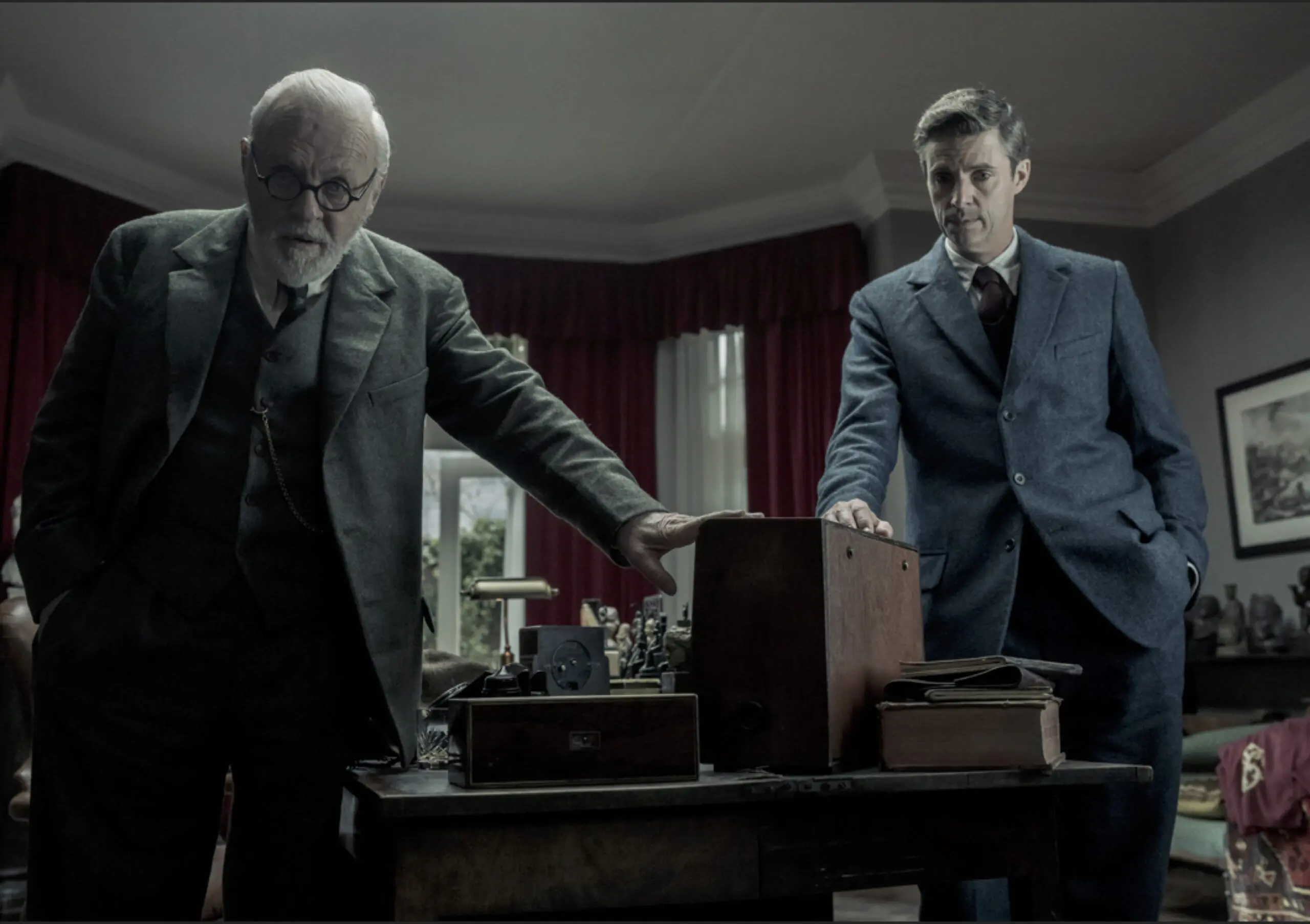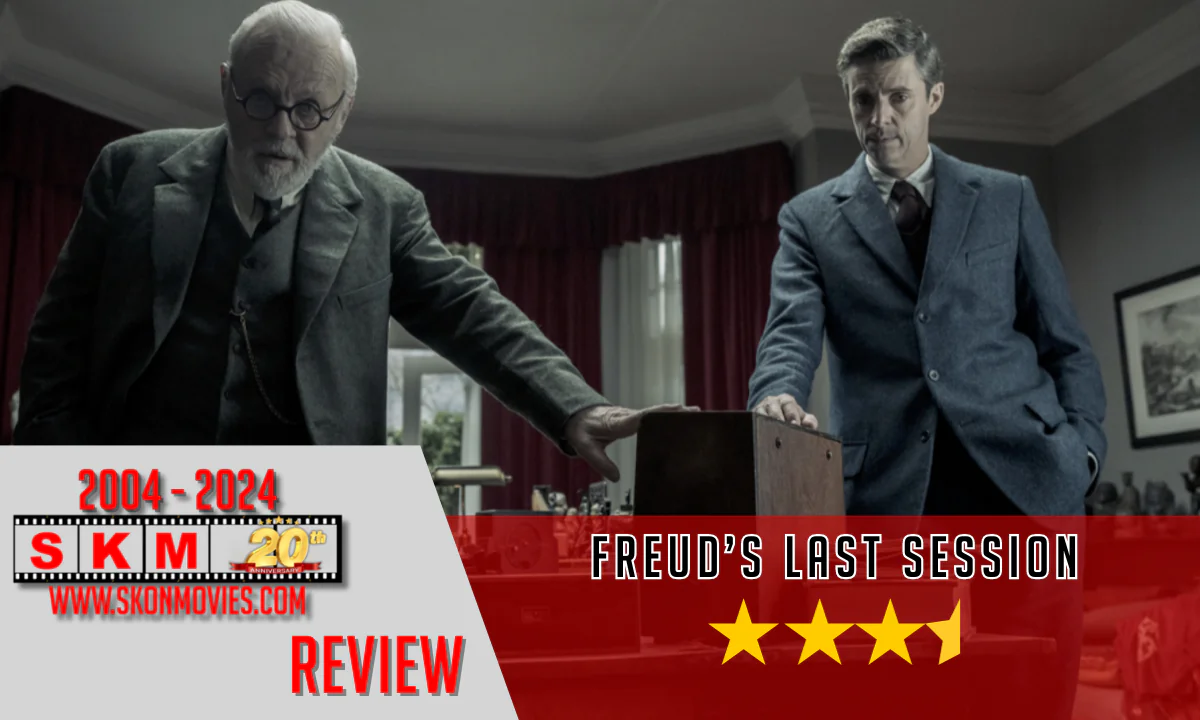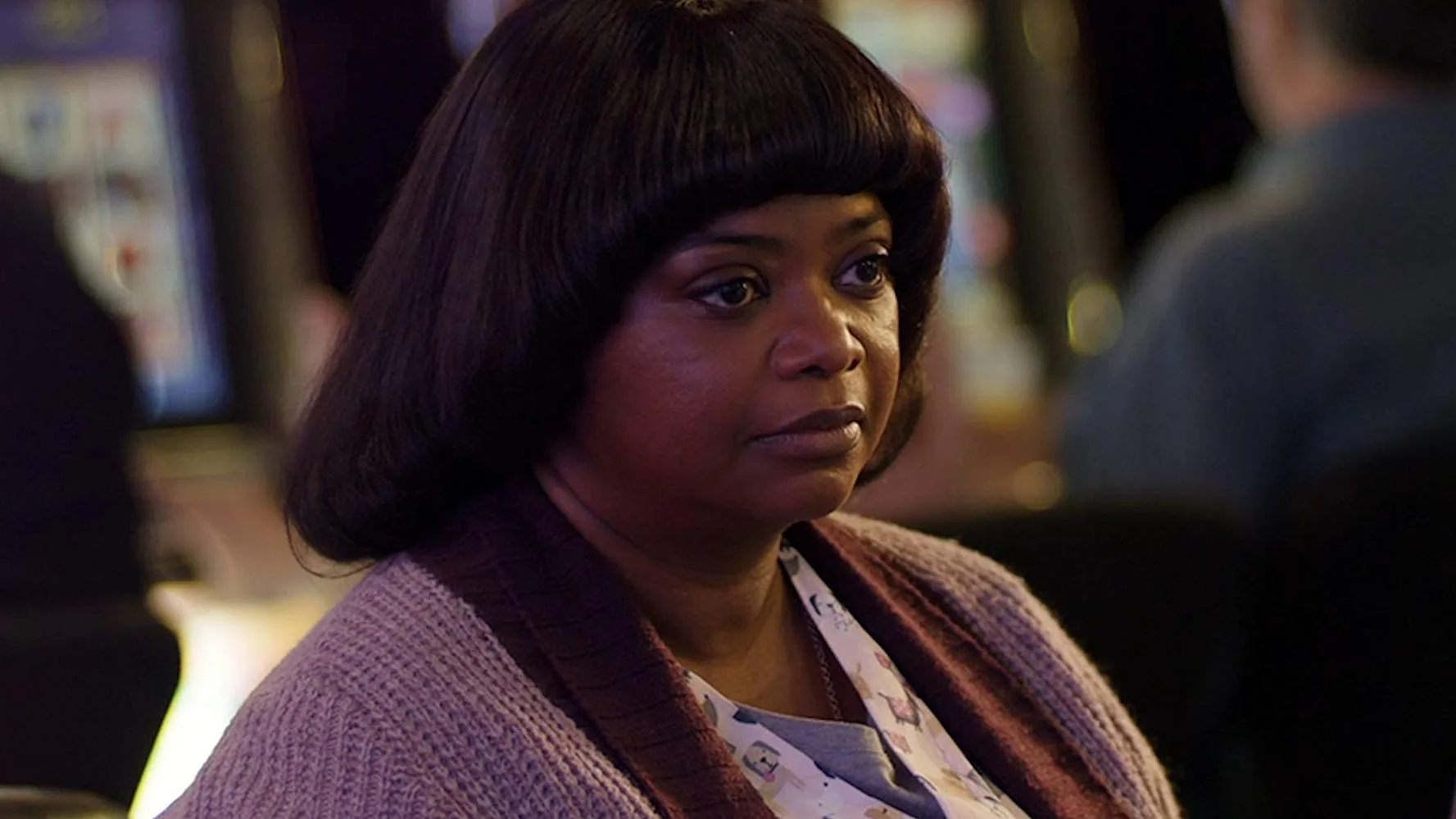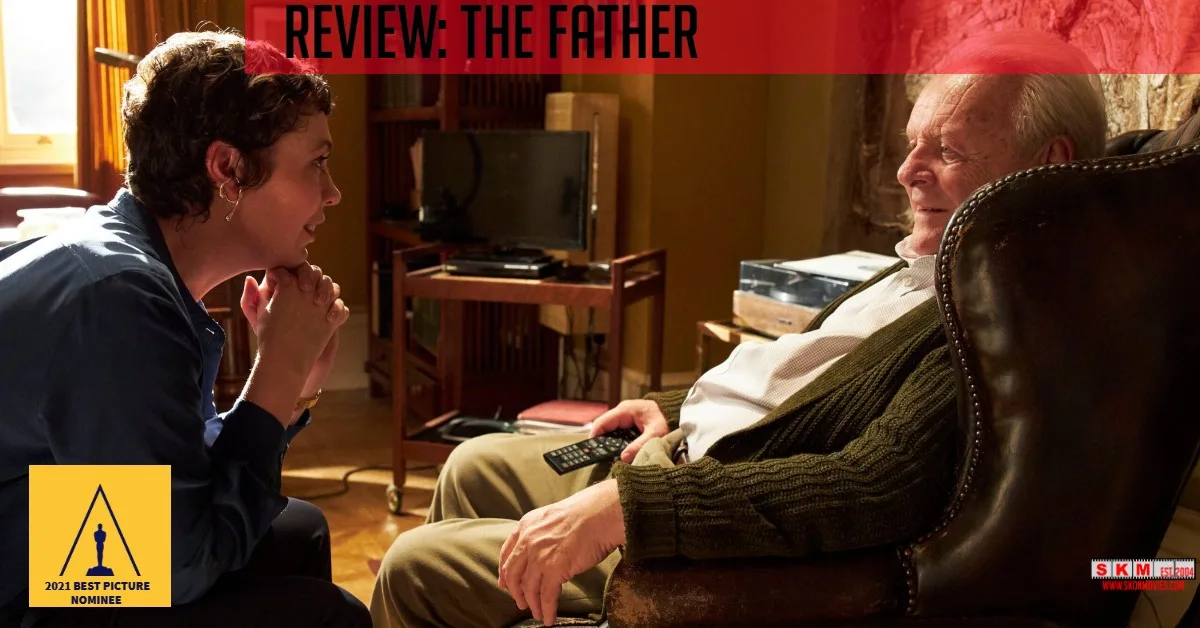Content Advisory: Suicide
Sigmund Freud and C.S. Lewis debate the existence of God on the eve of World War II in Freud’s Last Session. On September 3, 1939, England declared war against Germany. Psychoanalyst Sigmund Freud (Anthony Hopkins) has recently fled from Vienna to London, though he is slowly dying from mouth cancer, which constantly worries his daughter Anna (Liv Lisa Fries). Freud has invited over Oxford Professor C.S. Lewis (Matthew Goode), a burgeoning author, who has recently converted from Atheism to being a “Christian apologist.” Throughout the day, the two debate the pros and cons of having faith in Religion and how these beliefs tie to their past experiences.
Freud’s Last Session Synopsis
Freud’s Last Session is a drama directed by Matthew Brown (The Man Who Knew Infinity), based on the play of the same name by Mark St. Germain, which in turn is based on the 2003 book

The film also features a subplot involving Freud’s daughter Anna, a developing psychoanalyst in her own right, who has been making accusations of having an “attachment disorder,” due to her putting the care of her cancer-stricken father above all else. Anna is also a closeted lesbian in a relationship with her friend Dorothy Burlingham (Jodi Balfour, Ted Lasso). This causes tension in Anna’s relationship with her father, who is shown in flashbacks as being quite reluctant to analyze Anna’s desires.
My Thoughts on Freud’s Last Session
Considered the “father of psychoanalysis,” I’m surprised there haven’t been more films about Sigmund Freud, with the last notable one arguably being David Cronenberg‘s A Dangerous Method from 2011, which saw Viggo Mortensen play a much younger depiction of Freud as seen in this film. Freud’s Last Session takes place mere weeks before Sigmund Freud’s death in September 1939 and he spends much of the film pondering his imminent demise, which includes eyeing a cyanide pill that he keeps on his person.
Both Anthony Hopkins and Matthew Goode give solid performances in the film and Freud’s Last Session is best when the focus is on the religious debate between Sigmund Freud and C.S. Lewis. However, the film seems to have an overreliance on flashbacks to fill in the gaps between the narrative. This includes showing why Freud was forced to flee Vienna, as C.S. Lewis develops a “friendship” with Janie Moore (Orla Brady), the mother of Lewis’s friend who died during the First World War.
In addition, the subplot in Freud’s Last Session about Anna Freud’s “attachment disorder” with her father, as she desperately tries to find an open pharmacy to acquire his morphine prescription, seems to belong in a different movie. The film hints that despite Sigmund Freud’s liberal views about homosexuality, he does not approve that Anna is a lesbian. I’m not sure how big a role Anna plays in the original play, but her role in the film does feel out of place.
Ultimately, Freud’s Last Session is a film that can be considered an awards season also-ran. While it’s fun seeing Anthony Hopkins play out the eccentricities of Sigmund Freud, this is a film that is unlikely to leave much of a lasting impression.






